SUMMARY
This is AI generated summarization, which may have errors. For context, always refer to the full article.
![[EXPLAINER] Should the Comelec prohibit the substitution of candidates?](https://www.rappler.com/tachyon/2021/10/TL-sq.jpg)
The right to withdraw one’s candidacy stems from a person’s inherent prerogative to change his mind. This means that after filing his certificate of candidacy (COC), an aspirant is given the right by law to withdraw his participation in the elections at anytime before election day.
If the withdrawal is done before November 15, 2021, one’s name will be excluded from the ballots. If after that date, his name may still appear in the ballots, but votes cast in his favor will be deemed stray and not be counted.
When a candidate withdraws, the political party earns the right to substitute the withdrawing candidate. It must be understood that when a political party issues a nomination (certificate of nomination and acceptance or CONA) and the candidate accepts it, the candidate becomes part of the political party’s team in the same way that a basketball player gets drafted by a team. So when that player can no longer play for any reason, the party earns the right to substitute that player.
The right to substitute does not exist in the case of independent candidates as there is no political party that is prejudiced.
While substitution of candidates may seem to be a recent concern – with a few parties suspected to have nominated only placeholder candidates for president and vice president – substitution has been existing since the dawn of electoral democracy in the country.
The prevailing rule in substitution is still Section 77 of the Omnibus Election Code, which was passed back in 1985. Under it, substitution can be made even until mid-day of the day of the election on three grounds: death, disqualification, and withdrawal. These three grounds for substitution in the 1985 Omnibus Election Code were a reiteration of the same grounds in Section 34 of the Election Code of 1971. Before that, in the Revised Election Code of 1947, only two grounds were allowed for substitution: death and disqualification.
In 2001, Republic Act 9006 was passed and it mandated that, after the printing of the ballot, the substitute candidate must be of the same family name as the substituted candidate. Because of this rule, wives, children, and parents often become substitutes, although the law does not require blood relationship but only similarity in surnames. This means that even a complete stranger can actually substitute as long as he or she is of the same surname as the original candidate.
On October 6, 2009, the Commission on Elections (Comelec) passed Resolution 8678, which moved to December 14, 2009, the deadline for the filing of COCs of substitutes for candidates who withdrew. This was instead of election day deadline as provided in Section 77 of the Omnibus Election Code.
In Federico vs. Comelec (GR No. 199612, January 22, 2013), this move by Comelec was assailed as unconstitutional, but the Supreme Court upheld the poll body on the ground that, under Section 11 of Republic Act 8436, the Comelec had been given the general authority to move dates for certain pre-election proceedings. The Supreme Court reasoned:
“Unlike death or disqualification, withdrawal is voluntary. Generally, a candidate has sufficient time to ponder on his candidacy and to withdraw while the printing has not yet started. If a candidate withdraws after the printing, the name of the substitute candidate can no longer be accommodated in the ballot and a vote for the substitute will just be wasted.”
To summarize, substitutions by reason of death and disqualification can be made until midday of election day, provided that the substitute must be of the same surname. In the case of substitution by reason of withdrawal, the deadline shall be whichever date the Comelec sets. In the case of the 2022 elections, the deadline is November 15, 2021.
The rule on substitutions has been much vilified, especially by those who still cannot get over President Rodrigo Duterte’s much-hyped substitution in 2015. Observers are thinking the playbook is being adopted again by political parties supportive of the Duterte government and the candidacy of people close to the president. There are some quarters who even propose that substitution by reason of withdrawal be prohibited entirely.
My position is: just because some people abuse our rules for substitutions does not justify the removal of everyone else’s prerogative to change their minds. There are legitimate reasons why people withdraw from an election, like matters of health, family, finances, career, and even personal reputation. I know of someone who suddenly changed her mind for fear of campaigning during a pandemic. Running in an election is a serious matter that people may all of a sudden find themselves biting more than they can chew.
Now, how about those who never had the intention to run to begin with, but filed their COC as a placeholder for a substitute who has yet to make up their mind? There being no bona fide intention to join the elections, a person who shows indications of being a placeholder can be declared a nuisance candidate. Once the nuisance’s COC is cancelled, it is deemed as if no COC was filed and, hence, no substitution will be allowed. – Rappler.com
Emil Marañon III is an election lawyer specializing in automated election litigation and consulting. He is one of the election lawyers consulted by the camp of Vice President Leni Robredo. Marañon served in Comelec as chief of staff of the late Chairman Sixto Brillantes Jr. He graduated from the SOAS, University of London, where he studied Human Rights, Conflict, and Justice as a Chevening scholar. He is a partner at Trojillo Ansaldo and Marañon (TAM) Law Offices.
Add a comment
How does this make you feel?
![[WATCH] In The Public Square with John Nery: Preloaded elections?](https://www.rappler.com/tachyon/2023/04/In-the-Public-Square-LS-SQ.jpg?resize=257%2C257&crop=414px%2C0px%2C1080px%2C1080px)
![[Newspoint] 19 million reasons](https://www.rappler.com/tachyon/2022/12/Newspoint-19-million-reasons-December-31-2022.jpg?resize=257%2C257&crop=181px%2C0px%2C900px%2C900px)

![[OPINION] The long revolution: Voices from the ground](https://www.rappler.com/tachyon/2022/06/Long-revolution-June-30-2022.jpg?resize=257%2C257&crop=239px%2C0px%2C720px%2C720px)
![[OPINION] I was called a ‘terrorist supporter’ while observing the Philippine elections](https://www.rappler.com/tachyon/2022/06/RT-poster-blurred.jpeg?resize=257%2C257&crop_strategy=attention)
![[Newspoint] Improbable vote](https://www.rappler.com/tachyon/2023/03/Newspoint-improbable-vote-March-24-2023.jpg?resize=257%2C257&crop=339px%2C0px%2C720px%2C720px)
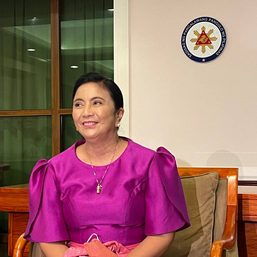





![[New School] Tama na kayo](https://www.rappler.com/tachyon/2024/02/new-school-tama-na-kayo-feb-6-2024.jpg?resize=257%2C257&crop=290px%2C0px%2C720px%2C720px)
![[Only IN Hollywood] After a thousand cuts, and so it begins for Ramona Diaz and Maria Ressa](https://www.rappler.com/tachyon/2024/02/Leni-18.jpg?resize=257%2C257&crop=262px%2C0px%2C720px%2C720px)
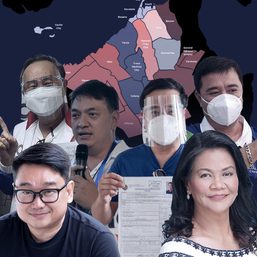

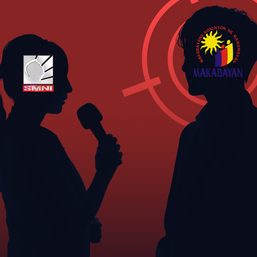
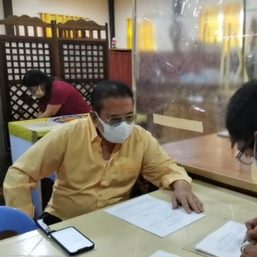



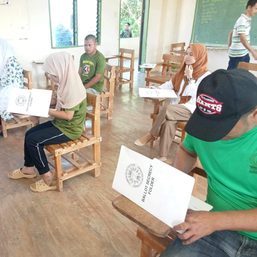

There are no comments yet. Add your comment to start the conversation.